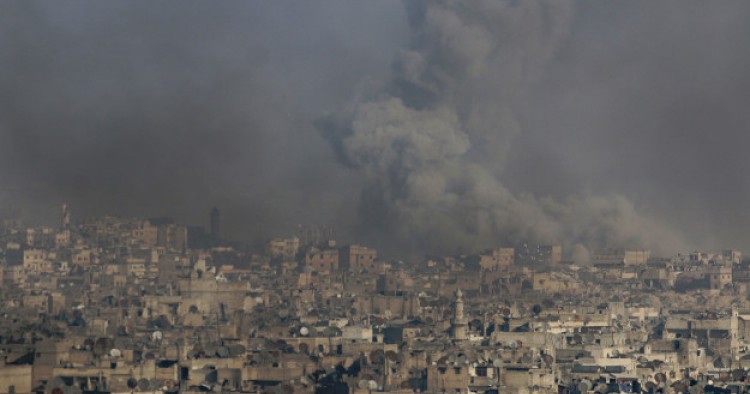President Donald Trump’s plan to establish safe zones in Syria continues to raise questions in Iran. Tabnak, an outlet run by former Islamic Revolution Guards Corps (I.R.G.C.) chief commander Mohsen Rezaei, published a lengthy article on February 23 analyzing the feasibility and ramifications of setting up safe zones inside Syria. The article said Trump reiterated during a speech on February 18 in Florida that he would go ahead with the plan, and noted that Saudi Arabia has also expressed readiness to cooperate with Washington to implement the plan. But Tabnak warned that analysts believe such a plan is both dangerous and unrealistic. The article argued that creating safe zones in Syria would require substantial U.S. military presence on the ground to safeguard the area for a long time as the Syrian war “is unlikely to end any time soon.”
It further warned that if the U.S. and its allies are unable to protect such safe zones, the “consequences will be dire” and the safe zones will become soft targets by armed groups. Moreover, the article opined that establishing safe zones will put the United States on a direct path of confrontation with the Syrian government, Russian military and militia groups backing the regime of Bashar al-Assad. It noted that Damascus has rejected the plan, and without the Syrian government’s approval, establishing safe zones inside Syria would be seen as a “hostile move because it is tantamount to occupying parts of the Syrian land by foreign military forces.”
Comment: Donald Trump had repeatedly promised during the election campaign that he would establish safe zones inside Syria or in one of its neighbors to protect civilians instead of allowing Syrian refugees to come to the United States. And after he took office, he reiterated on January 27 that he "will absolutely do safe zones in Syria." Since then, the Iranian leaders and media have consistently warned Washington against such a plan.
In a meeting with visiting French Foreign Minister Jean-Marc Ayrault in Tehran on January 31, Iran’s Supreme National Security Council Secretary (SNSC) Ali Shamkhani warned that Washington’s plan, if implemented, would lead to Syria’s disintegration. “If some parties constantly pursue the exclusion of Syria’s legitimate president and the creation of a power vacuum in the country, or take steps to divide the country by plans such as setting up safe or buffer zones, they will actively strengthen terrorism and prolong the crisis in the region,” the senior aide to Supreme Leader Ali Khamenei said.
A Press TV report also cautioned that the execution of such a plan could trigger a confrontation between the United States and the Russian and Syrian forces. Another article argued that the creation of safe zones in Syria would be difficult and risky because divergent interests of regional countries would hinder a successful enforcement of the plan. The commentary in the Iranian media also indicates that Tehran is worried that the establishment of safe zones in Syria would strengthen the alliance between Washington and regional Sunni Arab states at the expense of Iran’s regional agenda and interests
The Middle East Institute (MEI) is an independent, non-partisan, non-for-profit, educational organization. It does not engage in advocacy and its scholars’ opinions are their own. MEI welcomes financial donations, but retains sole editorial control over its work and its publications reflect only the authors’ views. For a listing of MEI donors, please click here.












